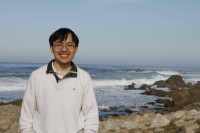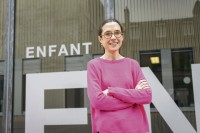Chronic & Non Communicable Diseases
Prevention & Personalised Health
Cancer
Diagnosis & Imaging
Immune System
Biomarkers
Post-Doctoral Fellowships
Singapore
2017.02.28
A state-of-art imaging technique to map the tumour's microenvironment
A two-in-one technology to shed light on the mechanisms driving the disease
During his two-year research project, Dr. Chen's objective is to adapt and optimize the MERFISH technique for the study of tumour clinical specimens. Once the technique is established and tested, him and his team will be able to use it to compare the gene expression patterns of different tumour stages and therapeutic outcome. In doing so, they hope to identify spatial patterns to better classify tumours, biomarkers that could more accurately predict the efficacy of existing treatments, or discover new pathways that could be therapeutically targeted.
Using a remarkably multi-disciplinary approach combining bio-informatics, imaging, synthetic biology and clinical oncology, Dr. Chen's project will significantly contribute to a better understanding of the mechanisms involved in tumour growth and metastasis. Making single-cell resolution maps possible, his state-of-the art and innovative imaging technique could also be extended to other diseases.

Kok Hao
CHEN
Institution
Genome Institute of Singapore
Country
Singapore
Nationality
Singaporean
Related articles
Chronic & Non Communicable Diseases
Medical Treatment & Drug Development
Chronic Pain & Musculoskeletal Disorders
Drug Delivery
Biotech- and Nanotechnology
AXA Project
France
Pain Pediatric & Elderly AXA Research Lab (PEARL)
Chronic pain is recognized as a major public health problem affecting patients in their daily activity, physical and mental health,... Read more

Celine
GRECO
.thumbnail.jpg)
